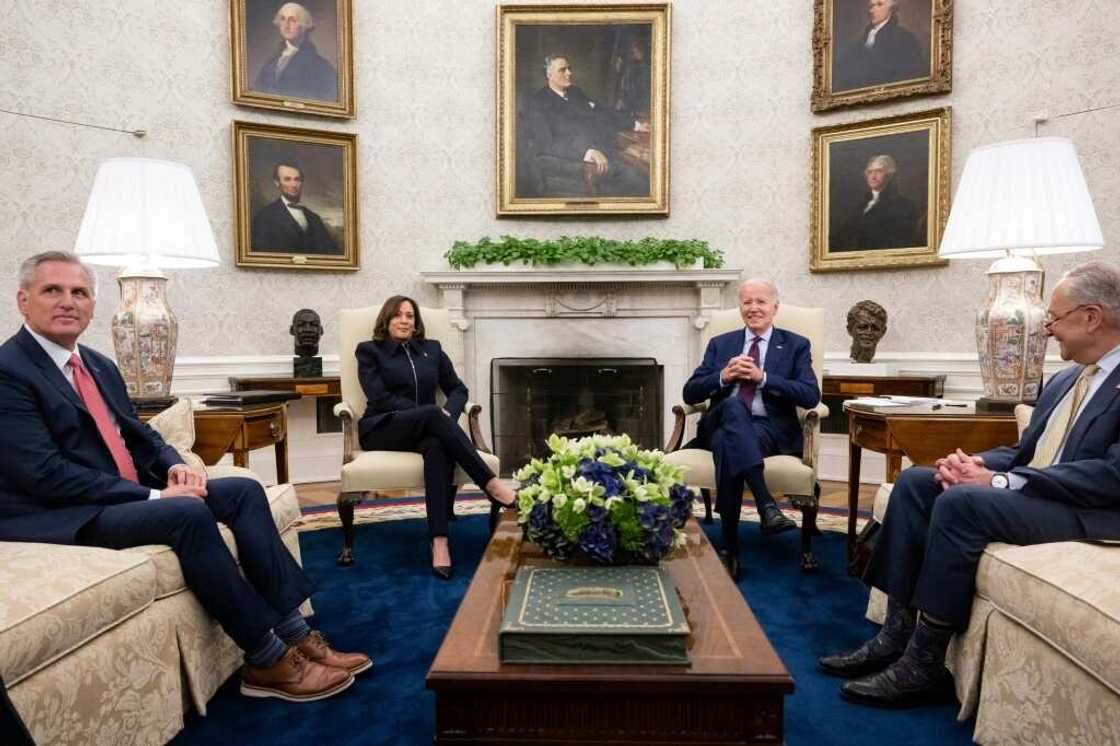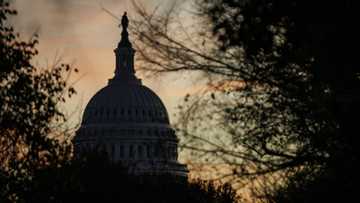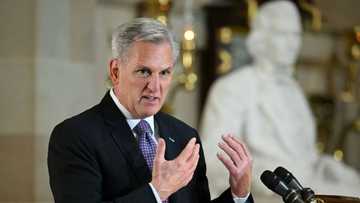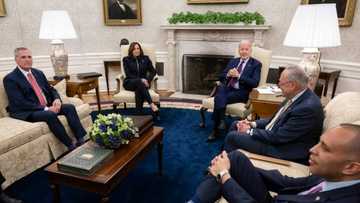US debt talks on knife edge

Source: AFP
PAY ATTENTION: Сheck out news that is picked exactly for YOU ➡️ click on “Recommended for you” and enjoy!
Talks to avoid a US debt default were on a knife edge Saturday as President Joe Biden warned he would not accept "extreme" Republican demands but suggested there remained a path to success.
With the Treasury Department warning that the US government could run out of money as early as June 1 -- triggering massive economic disruption in the world's biggest economy and likely around the globe -- the political battle in Washington see-sawed without any sign of imminent resolution.
Republicans, who control the House of Representatives, are demanding steep budget cuts as a price for allowing an extension of the government's borrowing authority. The White House is seeking to whittle down Republican demands, while arguing that the traditionally uncontroversial annual debt ceiling increase is being weaponized for political gain.
Hopes for a settlement took a blow Friday when Republicans walked out of negotiations, declaring a "pause."
However, the talks restarted later, leading White House Press Secretary Karine Jean-Pierre to say "we are indeed optimistic."
Biden, on the other side of the world at a G7 summit in Hiroshima, was briefed on the situation early Saturday, which was still Friday night in Washington, the White House said.
PAY ATTENTION: Share your outstanding story with our editors! Please reach us through info@corp.legit.ng!
Biden communications director Ben LaBolt said "Republicans are taking the economy hostage and pushing us to the brink of default, which could cost millions of jobs and tip the country into recession after two years of steady job and wage growth."
While Biden will not accept "extreme" Republican policies, "there remains a path forward to arrive at a reasonable bipartisan agreement if Republicans come back to the table to negotiate in good faith," LaBolt said.
Tax and spending
More borrowing is required by the US government just to meet expenditures already made, meaning that refusal by the Republicans to lift the debt ceiling would leave Washington unable to pay its bills, triggering an array of economic shockwaves.
Republicans argue that the more than $31 trillion in US national debt is too high to accept and that there should be agreement on getting the books more balanced, rather than simply authorizing a still-higher debt allowance.
Democrats say that they are willing to discuss the budget but that first the debt ceiling needs to be raised without condition so that the existing bills can be paid and US financial credibility preserved.
Briefly calling off the talks on Friday, House Speaker Kevin McCarthy said: "We've got to pause," because "we can't be spending any more money next year."
But Biden's team says the raft of spending cuts being demanded by Republicans are fueled by the agenda of the party's increasingly dominant hard-right wing.
In his statement, LaBolt said that the Republican budget cuts would lead to large scale job losses and the weakening of social safety nets, while extending tax breaks for the wealthy. The counter-proposal from the White House is to raise taxes on the wealthy to improve revenue and to accept more limited spending cuts.
Biden leaves Japan for Washington on Sunday, cutting short a trip that had been set to take him to Papua New Guinea and Australia next week.
Source: AFP




